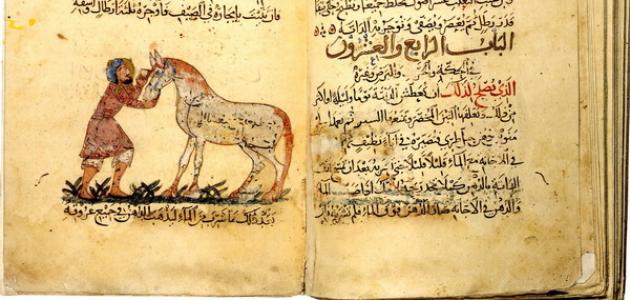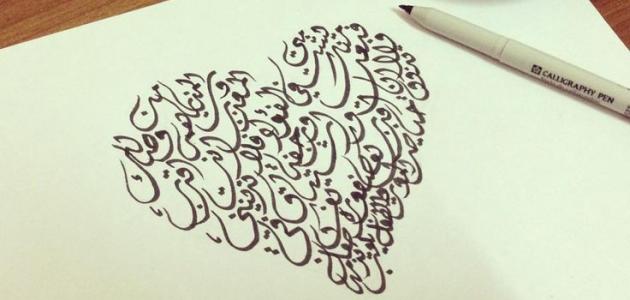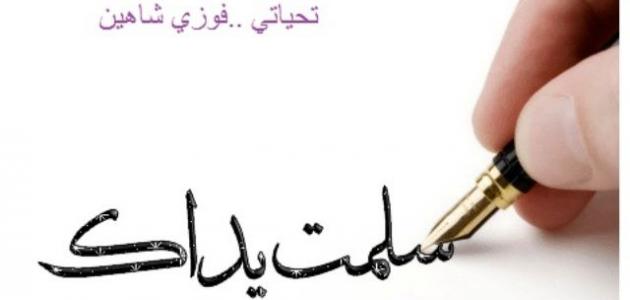Dubit is one of the poetic meters developed in the Abbasid era in general, and in the poetry of Al-Arjani in particular, and it is originally a Persian meter consisting of four activations in each poetic part, and its weight is as it appears in the Persian works on: the effect of the factors of the two factors of Fa’a (four times), as it is mentioned In the Arabic compilations on: Fa’lun Mutafilun Fa’lun Fa’lun (four times).
It consists of two verses of poetry only, four activations in each part of my poetry, and each of the activations differs from the other, even if they agree in rhythm and tone, but we must realize the difference between Arabic meters and Persian meters, as creative Arab tastes may not be consistent with tastes The creative Persian weave on one pattern of poetic meters, due to the difference in the environment and culture, and the conditions inherent in the process of poetic creativity, and this is evident in the contradiction between the weight of the dubette in the Persian works and the Arabic works.
The presence of some deviant examples of the weight of the doubette confirms the incompatibility between the Persian weight and the Arabic weight, in addition to the scarcity of weaving in its style, and this saying will be evident later in the poetry of Al-Arjani, as there are many deviations in the weight of the doubette, despite weaving a good number of it, which reached two Ten dopetas. The word dubit is composed of two words, one Persian and the other Arabic. The Persian word is “du” which means two, and the Arabic word is “house”, because the rhyme system in it applies to the two verses of these systems, as each two verses is considered an independent unit.
Read also:What a beautiful sunsetDobit is a Persian term that was influenced by later Arab poets in its style, but to what extent did they adhere to its prosodic rules, especially its activations?
- Worrying from me and Salim Malak
- since its junction has been darkened and separated
- No wonder if you see us parting
- The morning does not agree with the darkness
– -/ b b – b -/ b – -/ b b – – -/ b b – b -/ b – -/ b b –
do / act
– -/ b b – b -/ b – -/ b b – – -/ b b – b -/ b – -/ b b –
do / act
In the previous duets, Al-Arjani adhered to the activations of the duets found in the Arabic works, without changing them, for example, by resorting to slips and ills. For example, he also says:
- I will not be pleased if I suffer from insomnia
- In my night, not a candle shines
- My condition never agrees
- The body melts and the tampon burns
– -/ b b – b -/ b – -/ b b – – -/ b b – b -/ b – -/ b b –
Read also:How do I write an invitation?do / act
– -/ b b – b -/ b – -/ b b – – -/ b b – b -/ b – -/ b b –
do / act
Arjani may enter slips and ills in dubit. He says, for example:
- I miss you - oh far away
- The thirsty longing for the earthquake of water
- My death or my disease is my disease!
- Death, nor gloating enemies!
– -/ b b – b -/ b – -/ – – – -/ – – b -/ b – -/ – –
to do / to do / to do / to do
– -/ – – b -/ b – -/ – – – -/ b b – b -/ b – -/ – –
they did / they did / they did / they did
The poet used the “cutting” vowel emanating from the activation of “fail” in the performances and hits of the previous two verses. However, to what extent can the poet persist in the meter of dubit, especially with the introduction of four activations, and from various poetic meters, so will he be successful in following the same approach without An imbalance may occur in a hairline. He says :
Read also:A poem by the poet Fathi Saeed- I gave free rein to my wounded heart
- Hawra'a notices that she kills me
- I was not satisfied with my sore heart
- But with my heart I redeemed my soul
– -/ b b – b -/ b – -/ – – – –/ b b – b -/ b – -/ – –
to do / to do / to do / to do
– -/ b b – b -/ b – -/ – – –/ b b – -/ b b –/ b b – –
did / reacted / acted / did
In the first verse of the previous verse, the poet succeeded in preserving the weight of the verse, as is the case in the first part of the second verse, but soon the weight was disturbed in the second part of the second verse, as the crawl of “cutting” entered into a “interacting” verb, and this verb It is derived from the “interacting” verb, but we were not familiar with its occurrence in the zahf of our ancient poets, and now it appears in the dubit meter, and it is repeated again in the multiplication of the same poetic part. The third activation “fail” comes instead of the “failun” activation, and the “interacting” activation is the multiplication activation instead of the “fail” activation. Thus, it is balanced in the rhythmic pattern in its poetic part, so that it becomes based on two activations only, not four activations, and thus its poetic part becomes based on The arrangement of compound themes in our ancient Arabic poetry, and the imbalance in some of the poetic parts may not be equal to what we are familiar with in the compound themes in ancient Arabic poetry. For example, he says:
- If he did not see his smile in the beholder
- He didn't mean to punch him
- The lover does not think to honor him
- He did not prefer the kiss except his mouth
– -/ bb – -/ bb – -/ bb – – -/ bb – b -/ b – -/ bb –
did / reacted / reacted / did
– -/ bb – -/ bb – -/ bb – – -/ bb – -/ bb – -/ bb –
verbal
There is no harm for us in the second part of the first poetic verse, as we do not worry about the Persian dupette system in it, but the disturbance occurred in the remaining poetic parts, as it came to the rhythm of one prosody, in its second and third activations the fragments “interacted” followed by the activation of “falan” The first activation, and the fourth activation “failan”. He also says in this vein:
- Do you know by God what the wax says?
- For the fire, and the shine has risen from it
- Obedience is in me for passion and hearing
- As long as you shine, I will shed tears
– -/ – – b -/ b – -/ – – – -/ b b – b -/ b – -/ – –
to do / to do / to do / to do / to do
– -/ b b – b -/ b – -/ – – – -/ b b – -/ b b – -/ – –
did / reacted / acted / acted
The defect appeared in the second part of the second verse, where it separates the two verbs “falan” – the first and the last verb “interacting”. He also says in the same place, and in the same poetic line, in another couplet:
- In my heart a blazing fire rages
- Put your palm over it, lest it smack
- No, no, and I'm afraid it will burn
- From the heat of my heart, the burning increases
– -/ – – b -/ b – -/ b b – – -/ b b – b -/ b – -/ b b –
did / acted / did
– -/ bb – b -/ b – -/ bb – – -/ bb – -/ bb – -/ bb –
did / reacted / acted / acted
He also says in the same way in another dubit:
- How many burns in my heart for your eyes
- If I live, her answer will come in a format
- Or death hastened me by cutting off the leech
- How many debts like this are on my neck
– -/ – – b -/ b – -/ b b – – -/ b b – b -/ b – -/ b b –
did / acted / did
– -/ b b – -/ b b – -/ b b – – -/ – – b -/ b – -/ b b –
verbal
The disorder is manifested in the first part of the second poetic line, and if I try to put appropriate interactions to bridge the prosodic imbalance, which may occur from time to time in a verse, or several verses, I am in some places unable to do so, such as his saying:
- People are ordered to be patient
- Patience, I am not in control of my affairs
- With patience, as it was said, victory is attained
- But in front of him is the annihilation of life
– -/ b b – b -/ b – -/ – – – -/ b – – b -/ b – -/ – –
to do / to do / to do / to do
– -/ b b – -/ b b – -/ – – – -/ b b – b -/ b – -/ – –
verb / interacting / reacting / doing
The prosody in the second part of the first poetic verse has a clear distortion of the Persian dubit system and the Arab one, as I was unable to put activations commensurate with our Arabic performances, especially the third tenet. Also, there is a defect in the first part in the second poetic verse, but I have referred to this issue previously. And I will avoid this crookedness in the following poetic verses, to stand on another issue, which is the presence of a new activation in performances and beating that we did not encounter in our old Arabic performances. He says :
- reprimanded me
- My heart for sadness has become a house of fire
- I wish the Magi had a religion to choose
- Until the pastures of the house of fire are destroyed
– -/ b – – -/ b b – -/ – - g – -/ – – b -/ b – -/ – -
verb
– -/ b b – b -/ b – -/ – - w – -/ – – b -/ b – -/ – -
to do / to do / to do / to do / to do
So we see that there is a new activation in our Arabic performances, namely, the activation of two verbs, which included the reason for cutting and appending, and this reason is repeated in his saying:
- It's okay if I melt my heart with your love
- The heart and whoever you stole from it, the heart will be sacrificed for you
- I turned around and said, "May God bless your evening."
- My Lord, is he blessed who does not see you?
– -/ b b – b -/ b – -/ b b – w – -/ b b – b -/ – -/ b b –
verb
– -/ b b – b -/ b – -/ b b – w – -/ b b – -/ b b – -/ b b –
verbal
And saying:
- O heart free from worries and sorrows
- Initiate the chances of time before betraying
- Do not despair, for your burden of worry is madness
- What was meant to be must be
– -/ b b – b -/ b – -/ b b – w – -/ b b – b -/ b – -/ b b –
verb
– -/ b b – b -/ b – -/ b b – w – -/ b b – b -/ b – -/ b b –
verb
Finally, it turns out that there are transgressions in Al-Arjani’s poetry composed on Persian dubette, for reasons that may relate to the difference in taste in terms of Persian and Arabic poetic music. The Arab taste of the poet is not consistent with this poetic meter, so it falls from time to time in turmoil and imbalance, but if we go back to the real weight of Bahr Al-Mizan (dubit), we would find that the Arjani poet did not fall into a broken meter or a mistake in my performances









